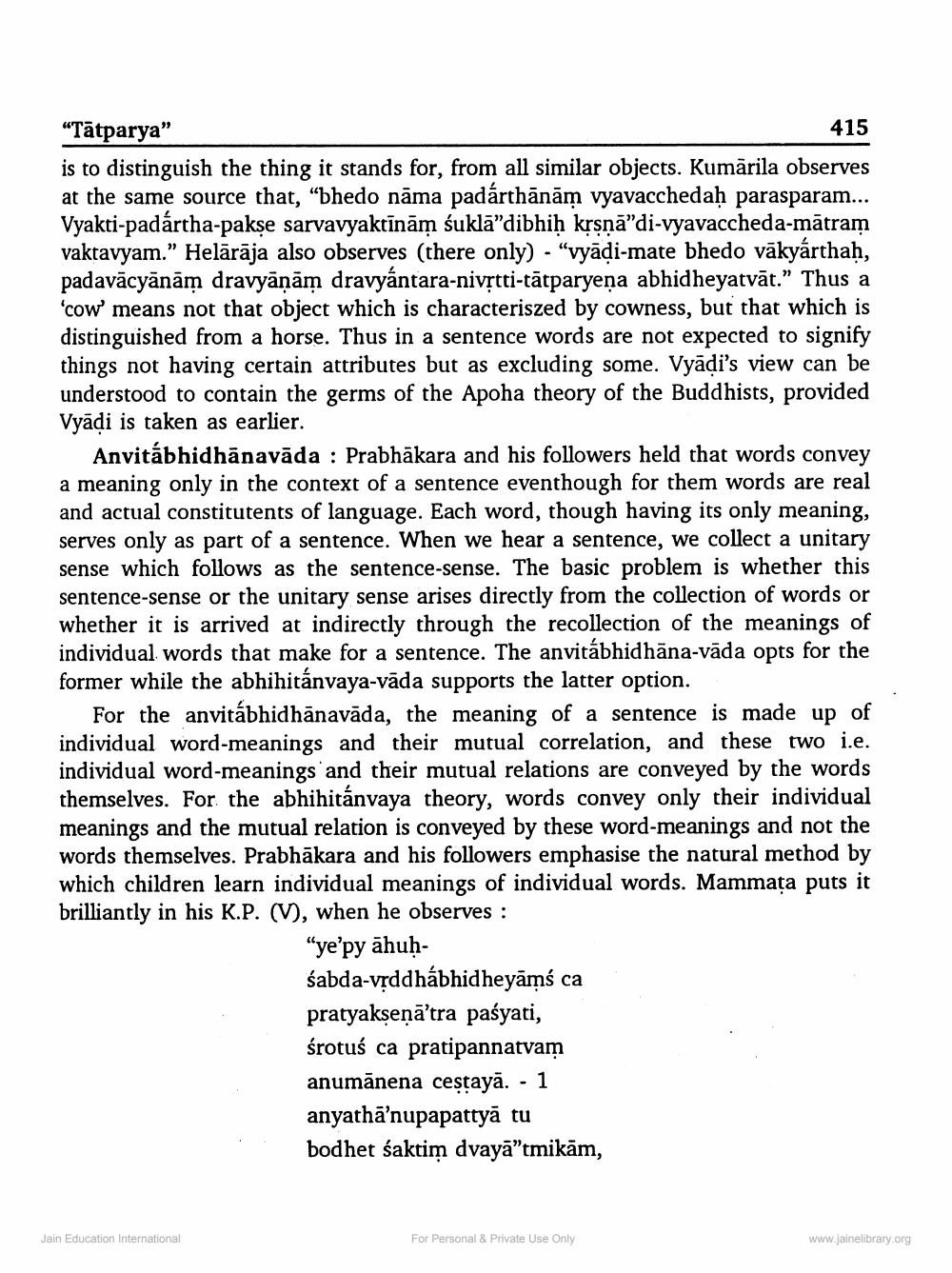________________
"Tātparya"
415 is to distinguish the thing it stands for, from all similar objects. Kumārila observes at the same source that, “bhedo nāma padárthānām vyavacchedaḥ parasparam... Vyakti-padártha-pakse sarvavyaktīnām śuklā”dibhih krsnā"di-vyavaccheda-mātram vaktavyam.” Helārāja also observes (there only) - "vyādi-mate bhedo vākyárthah, padavācyānām dravyānām dravyántara-nivrtti-tātparyena abhidheyatvāt.” Thus a 'cow' means not that object which is characteriszed by cowness, but that which is distinguished from a horse. Thus in a sentence words are not expected to signify things not having certain attributes but as excluding some. Vyādi's view can be understood to contain the germs of the Apoha theory of the Buddhists, provided Vyādi is taken as earlier.
Anvitábhidhānavāda : Prabhākara and his followers held that words convey a meaning only in the context of a sentence eventhough for them words are real and actual constitutents of language. Each word, though having its only meaning, serves only as part of a sentence. When we hear a sentence, we collect a unitary sense which follows as the sentence-sense. The basic problem is whether this sentence-sense or the unitary sense arises directly from the collection of words or whether it is arrived at indirectly through the recollection of the meanings of individual words that make for a sentence. The anvitábhidhāna-vāda opts for the former while the abhihitánvaya-vāda supports the latter option.
For the anvitábhidhānavāda, the meaning of a sentence is made up of individual word-meanings and their mutual correlation, and these two i.e. individual word-meanings and their mutual relations are conveyed by the words themselves. For the abhihitánvaya theory, words convey only their individual meanings and the mutual relation is conveyed by these word-meanings and not the words themselves. Prabhākara and his followers emphasise the natural method by which children learn individual meanings of individual words. Mammata puts it brilliantly in his K.P. (V), when he observes :
“ye’py āhuhśabda-vrddhábhidheyāmś ca pratyaksenā’tra paśyati, śrotuś ca pratipannatvam anumānena cestayā. - 1 anyathā'nupapattyā tu bodhet saktim dvayā"tmikām,
Jain Education International
For Personal & Private Use Only
www.jainelibrary.org




